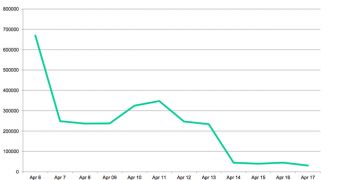Russian security firm Kaspersky has released some information on the state of the Macintosh regarding malware, highlighting that the ever-obvious trend that increased market-share means increased exposure to cyber-criminals.
Kaspersky Lab expert Kurt Baumgartner writes that, “In 2011, Apple was estimated to account for over 5% of worldwide desktop/laptop market share.”
“This barrier was a significant one to break – Linux maintains under 2% market share and Google ChromeOS even less,” says Baumgartner. “This 15 year peak coincided with the first exploration by the aggressive FakeAv/Rogueware market targeting Apple computers, which we discovered and posted in April 2011 and later in May 2011, which no longer seem to be such an odd coincidence.”
Baumgartner explains that the delay in Apple malware was not because cyber criminals couldn’t find exploits. Far from it:
“The 2007 "Month of Apple Bugs" demonstrated that the Mac OS X and supporting code is full of exploitable flaws. Safari, QuickTime, and other software on Apple devices is regularly exploited during pwnage contests, but widespread cybercrime attention hadn’t caught on until this past year,” he wrote.
Kaspersky held a press conference this week where it estimated that infections with the Flashback Trojan dropped to 30,000. The company warned that more “mass-malware” is on the way targeting OS X customers.
“Market share brings attacker motivation… Expect more drive-by downloads, more Mac OS X mass-malware. Expect cross-platform exploit kits with Mac-specific exploits,” Kaspersky said.
The Russian security vendor still doesn’t know who is behind the much-reported Trojan attacks in recent weeks, “so we don’t know for sure that they were the same Mac OS X FakeAv/Rogueware group,” Baumgartner said. “Speculating that eastern euro-cybercrime is behind the botnet would be a pretty confident way to go right now,” he added.

 14 DAY TRIAL //
14 DAY TRIAL //